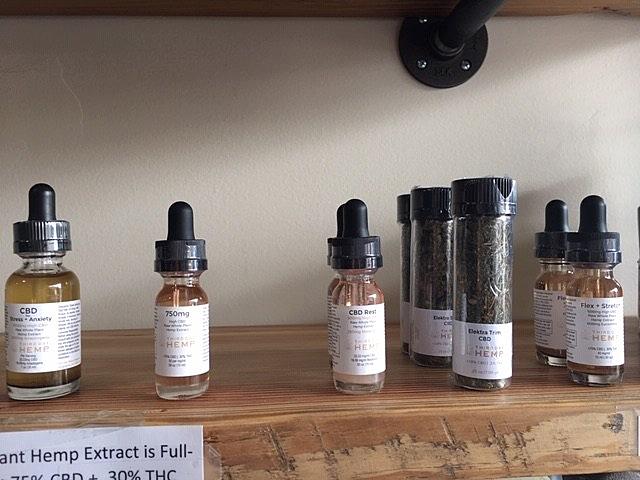In the world of hemp, two compounds have taken the spotlight: CBD (cannabidiol) and THC (tetrahydrocannabinol). These compounds found naturally in the hemp plant, have sparked a whirlwind of interest due to their potential health benefits and diverse effects on the human body. However, CBD and THC are not created equal; they possess unique characteristics that set them apart. In this article, we’ll delve into the world of CBD and THC, exploring their differences and similarities to gain a deeper understanding of their potential impact on our well-being.
The Basics: What Are CBD and THC?
CBD (Cannabidiol): Cannabidiol, commonly known as CBD, is one of over 100 cannabinoids present in the hemp plant. Unlike its counterpart THC, CBD does not produce the psychoactive “high” typically associated with hemp use. It’s worth noting that CBD can be derived from both hemp plants, and it’s legally available in various forms in many parts of the world. CBD has gained attention for its potential therapeutic properties, which include pain relief, anxiety reduction, and anti-inflammatory effects.
THC (Tetrahydrocannabinol): Tetrahydrocannabinol, or THC, is the cannabinoid responsible for the euphoric and psychoactive effects associated with hemp use. This compound binds to specific receptors in the brain and central nervous system, creating the sensation of being “high.” While THC has a range of potential medical benefits, its psychoactive nature and legal restrictions in many places have led to the more cautious exploration of its therapeutic potential.
The Effects: Highs and Healing
CBD Effects: CBD is often celebrated for its potential to provide relief without causing intoxication. Research suggests that CBD can interact with the body’s endocannabinoid system, which plays a role in regulating various physiological processes. People use CBD to manage pain, anxiety, depression, and even certain forms of epilepsy. Additionally, its anti-inflammatory properties have led to its incorporation into skincare products for conditions like acne and eczema.
THC Effects: THC’s psychoactive effects stem from its ability to bind with the brain’s cannabinoid receptors. Beyond inducing a sense of euphoria, THC can stimulate appetite, reduce nausea, and potentially alleviate pain. Medical hemp containing THC has been prescribed to patients with conditions such as multiple sclerosis and chemotherapy-induced nausea. However, its potential for addiction and impairment has led to its controlled status in many places.
Synergy and the Entourage Effect
While CBD and THC have distinct effects on their own, they also interact synergistically when consumed together, along with other compounds present in the hemp plant. This phenomenon is known as the entourage effect. The theory suggests that the combined presence of multiple cannabinoids, terpenes, and other phytochemicals enhances the therapeutic effects of each compound. For instance, CBD may mitigate the anxiety-inducing effects of THC when the two are present together.
Legality and Regulation
CBD Legality: The legal status of CBD varies worldwide. In some regions, CBD extracted from hemp containing minimal THC is considered legal, while in others, it might be tightly regulated or prohibited. The 2018 United States Farm Bill legalized hemp-derived CBD with less than 0.3% THC at the federal level, opening the door for a wide range of CBD products in the market.

THC Legality: THC’s legality is more complex due to its psychoactive nature. While some places have legalized medical and even recreational hemp, others maintain strict restrictions or prohibit its use entirely. The shifting legal landscape reflects ongoing debates about the potential benefits and risks of THC consumption.
Choosing the Right Option
The choice between CBD and THC often boils down to individual needs and preferences. If you’re seeking therapeutic benefits without the high, CBD might be a suitable option. It’s generally well-tolerated and available in various forms, including oils, tinctures, edibles, and topicals. On the other hand, if you’re in a location where THC is legally accessible and you’re comfortable with its psychoactive effects, it could be an option worth exploring, particularly for certain medical conditions. If you want to find great tips and information about CBD, get the details on their offerings.
Conclusion
CBD and THC represent two sides of the hemp coin, each offering a unique set of effects and potential benefits. CBD shines as a non-intoxicating option with promising therapeutic properties, while THC brings its euphoric high and a range of potential medical uses. The ongoing research into these compounds continues to uncover new insights, shedding light on their individual and combined potential to enhance well-being. As attitudes and regulations around hemp evolve, a more comprehensive understanding of CBD and THC will undoubtedly shape their roles in medicine, wellness, and daily life.




